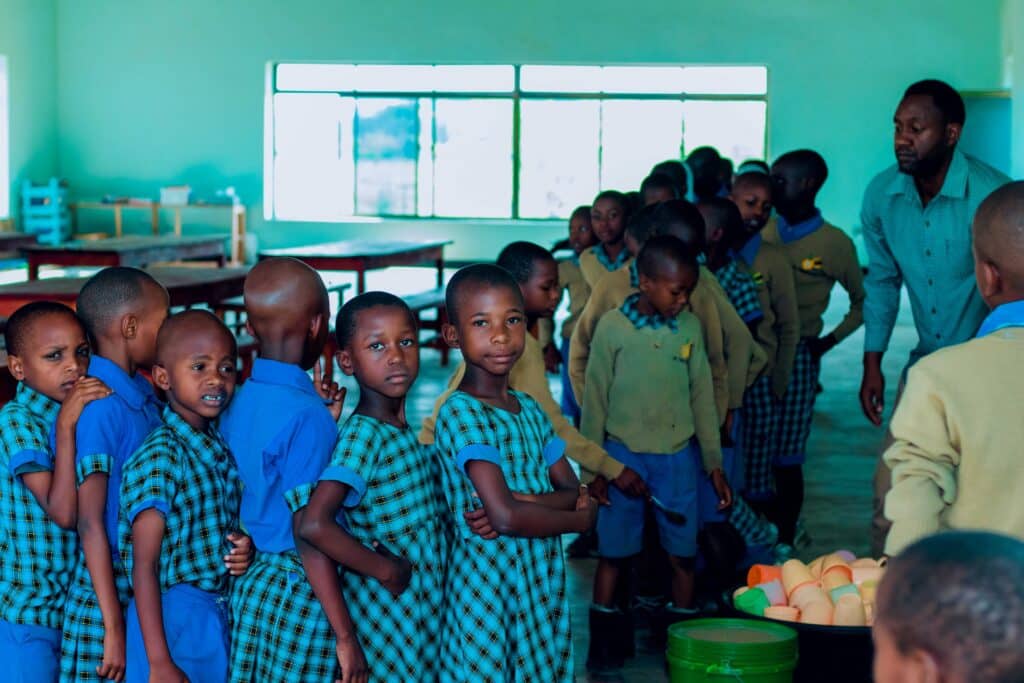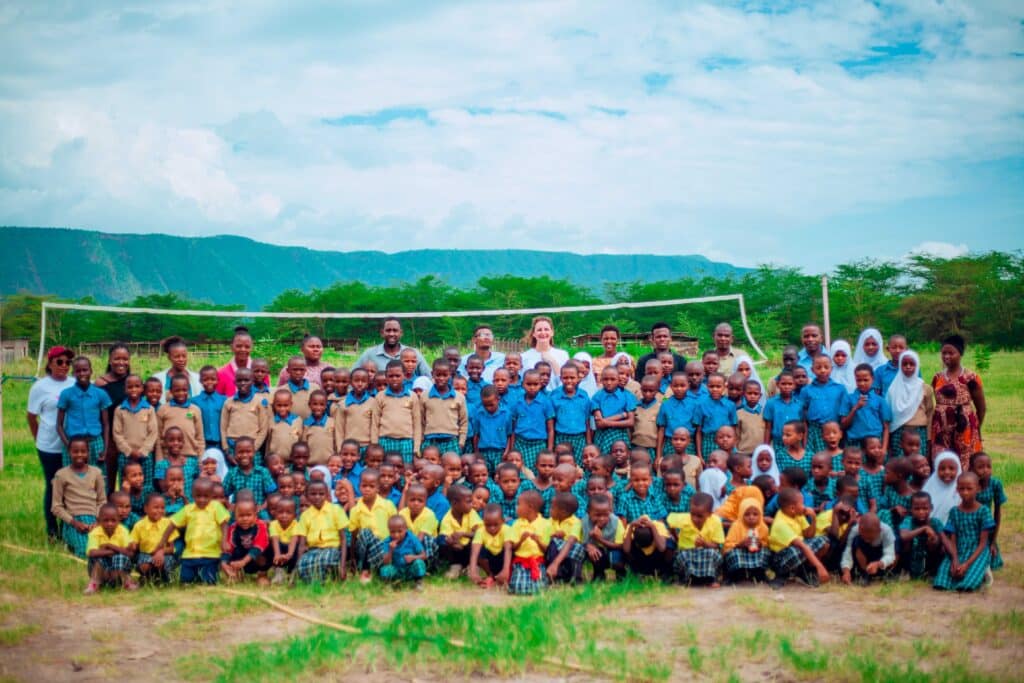Globally, children and women are most at risk of malnutrition with serious long-term consequences. Micronutrient deficiencies occur due to the consumption of foods lacking adequate nutrition in the form of essential vitamins and minerals, which are essential for the body to function efficiently. It is important to take action to support people in need of adequate nutrition which is why the VAXA ACTION Impact Nutrition Program is being implemented in Tanzania. According to UNICEF, Tanzania has made some progress in improving nutrition among children under 5 years of age. However, to reach the SDG targets more action is needed to accelerate progress.
The Bandari Project School, a not-for-profit organization, is helping to break the cycle of poverty by providing educational opportunities to underprivileged children and women in Mto wa Mbu, Tanzania, and is an essential partner in the VAXA ACTION Impact Nutrition Program. The Program is designed to provide improved nourishment for marginalized communities by fortifying traditional foods lacking in essential micronutrients with the VAXA Icelandic Ultra Spirulina (IUS) mix, a vegan ingredient rich in iron, protein, amino acids, and active natural B12, essential to nourish the brain and nervous system. This program fosters an inclusive multi-stakeholder collaboration between the school, MATIS, VAXA Technologies, and other essential stakeholders, including health professionals who will help monitor the children. The students at the Bandari school are from the most economically deprived families in the area and very often the meals they receive at school, provide their only regular access to food.

Through The VAXA ACTION Impact Nutrition Program, the daily school meals received by the children will be fortified with Icelandic Ultra Spirulina mix (IUS-mix), to significantly improve their nutritional intake. The project will also examine the application practicality and user acceptability of the enriched traditional Tanzanian foods, such as Millet porridge (Ugi). The nutritional values of the fortified food will be analysed to ensure that they meet the local nutritional needs, with a specific focus on children between the ages of 6 to 12 years old.
The effect on the children's development (overall health and well-being) will be monitored during the project lifespan. Furthermore, the aim is to support training, job creation, and a decent work environment in setting up the infrastructure and processes needed to implement this essential program in the project area of Mto wa Mbu, Tanzania.

News about the project

